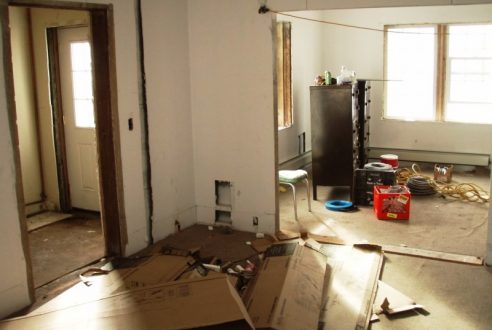On the face of it, managing a property may seem like a breeze. But don’t be fooled. It is nothing like shooting fish in a barrel. Looking for tenants to lease the houses, chasing rental payments and addressing the maintenance aspect can be nothing short of time-consuming – if not overwhelming. Investors need to consider all the factors before deciding what to do vis-a-vis property management vs. self-management.
Property Management vs. Self-Management
Whether one owns property or is interested in buying a property, there are two options for managing. One can either DIY (self-manage) the property or appoint a third-party professional (property manager) to look after the property. The question of which is the better option has no right or wrong answer. It all depends on an individual investor’s circumstances.
To best tackle this question, perhaps it would be nice to outline the advantages and disadvantages associated with each, then the final decision is up to the investor.
The Pros of Self-Management

The best thing about self-managed property is saving on management fees. And for those that believe in the saying, “If you want something done well, do it yourself,” dipping their toes into self-management will suit them well. They will feel better that they can manage it better than anyone else could.
Self-managing the property also means having a bigger say in tenant selection. The landlord can personally evaluate the application forms and speak with the potential renters. Since the property is theirs, they will go the extra length to ensure it is tenanted. Meanwhile, property managers with multiple properties to manage may be spread too thin, with your property possibly not always the top priority.
The Cons of Self-Management
Managing a property is not the easiest of tasks. It calls for a good amount of commitment from the owner due to the need to carry out constant management tasks like chasing late payments, ensuring the welfare of the tenants, performing regular inspections and so on.
An experienced property manager is privy to up-to-date, vital information necessary to run the business smoothly. Depending on the investor’s experience, this may prevent them from making informed decisions that could affect not just their revenue but could also carry legal implications.
Property managers have access to a wealth of real estate resources that are key to the effective marketing of the property. This is not something that one can say of self-management, which could ultimately impact rental returns.
The Pros of Property Management

A property manager may come as an added cost to the list of overheads but one of their biggest selling points is that they make work easier and minimize stress for investors. Property managers have a good understanding of the market and are well aware of the nuts and bolts of property management.
Emotion is always bound to get in the way of owners when it comes to handling some critical situations. Still, property managers can be reliable in handling deviant tenants and any damage to the property.
Property managers usually oversee the management of multiple properties, leading many of them to either take up or team up with professional maintenance services. This eliminates the process to “outsource” labor every time there is an issue. Ultimately, good maintenance management bodes well for the bottom line.
The Cons of Property Management
No matter how professional, there is always the chance that a property manager will not manage the rental property well, especially when overseeing multiple properties.
When entrusting the rental to a property manager, it could end up in the hands of someone incompetent or dishonest. Some could overcharge for maintenance and others might even collect extra money from tenants to line their own pockets.
There is always the question of cost when it comes to hiring a property manager. They take a cut from the rental income and a professional management company will usually pocket 5%–10% of the rent per unit they manage, in addition to other fees.
Others charge a placement fee for every new tenant they bring on board which often equals one month’s rent. Additional costs for maintenance might also be levied, so these are all things to consider. The investor needs to be on the same page with their property manager before entering into an agreement.
The Bottom Line: No One Cares About Your Properties Like You Do
If the investor is lucky enough to find a property management company that meets their expectations and runs the rental smoothly, that is ideal!
But that is not always the case. It can be challenging to find a management company that cares about the property the way you do. You buy your property for a reason, it was built out a certain way for a reason and you chose the best tenants for a reason. No one knows your property and its surrounding area better than you do. After all, you did your due diligence in investing in this property.
The fact of the matter is that most of these property management companies do not have a vested interest because most of them do not own any of the property in that neighborhood —or do not own property at all or ever have.
Most importantly, you do not need to put up with property managers that you are not satisfied with or those costing the business too much money. Create boundaries and stick to them, keep in touch with the property manager regularly and follow through if something does not feel right.
Let us know in the comments if you have a preference for self-managed or professional property management.



